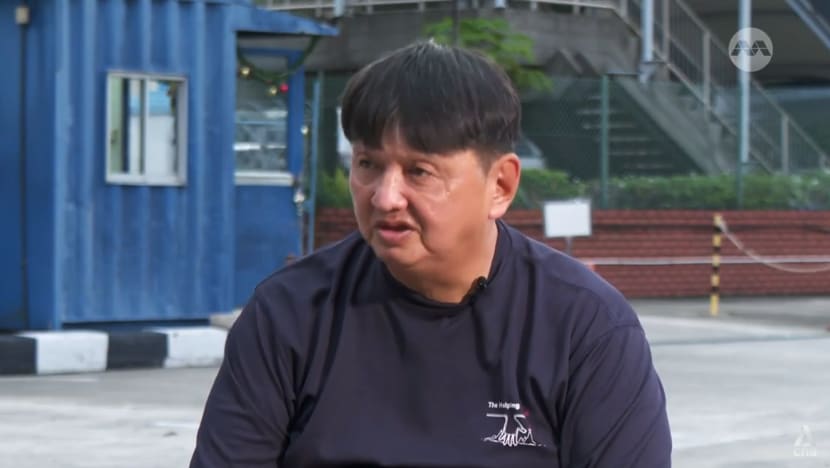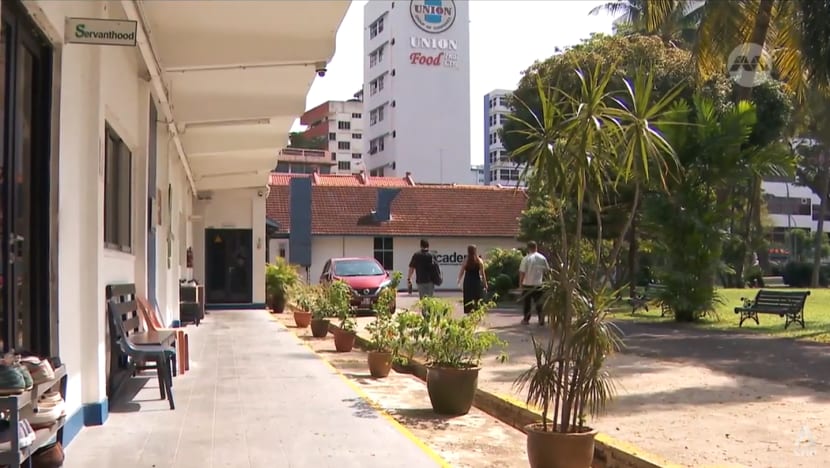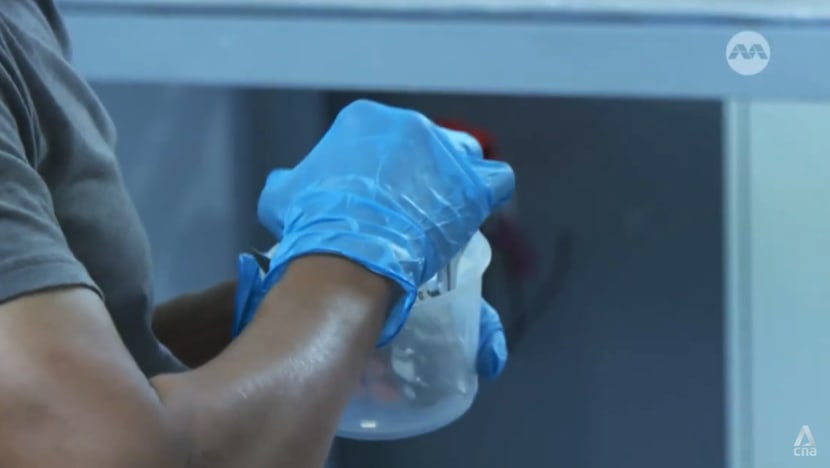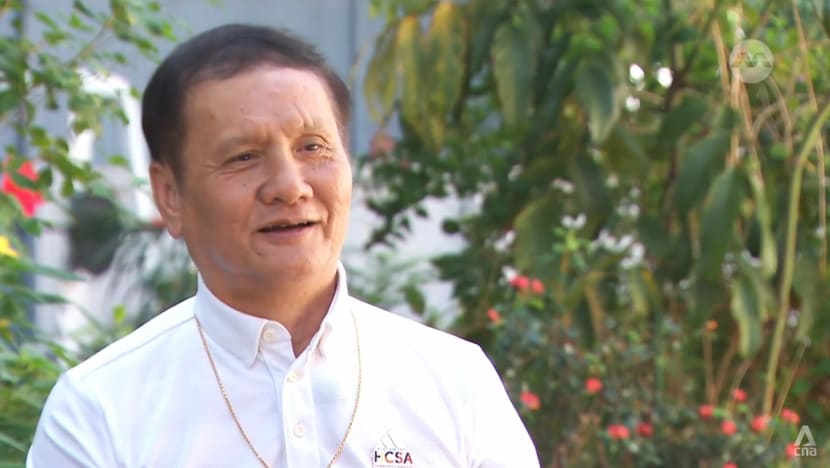Drug offenders in halfway houses less likely to reoffend after release compared to others: SPS
Overcoming drug addiction is a lifelong battle, but halfway houses can better prepare offenders as they complete their sentences and return to society.

A view of The Helping Hand halfway house.

This audio is generated by an AI tool.
SINGAPORE: New data from the Singapore Prison Service (SPS) showed that drug offenders in halfway house programmes are less likely to reoffend after they are released.
Among the latest cohort released in 2022, 23.5 per cent reoffended within two years – lower compared with the nearly 30 per cent who did not go through the programme and fell back into drug abuse, according to the government agency.
SPS said halfway houses help to keep offenders away from drugs, get them employed and help them secure a place to stay.
About 60 per cent of halfway house residents secure jobs, vocational training or education during their stay and 98 per cent are able to find accommodation before they are discharged, said SPS.
HELPED BY HALFWAY HOUSES
At The Helping Hand, ex-resident Mr Chan Ah Chin, who graduated last year, is giving back to the halfway house, which he credits for turning around his life.
The 59-year-old said the programme was much better than other forms of rehabilitation, following multiple incarcerations, as it supported him in taking up new courses.
“There’s no more going back to the old times taking drugs. All the staff, quite good (to) me. Some teach (me) how to do things, how to respect people,” he said, adding that his 96-year-old mother is overjoyed with his rehabilitation.

He now works as a security guard at the facility, hoping to set an example for residents like 48-year-old Jack – not his real name – get clean and reintegrate into society.
Jack, who is going through his fourth rehabilitation and a 20-year battle with drugs, told CNA he did not want to disappoint his family anymore.
"My parents are getting older. I would really want to spend my time with them … because they have always been there for me,” he said.
This is Jack’s first time in a halfway house. He hopes the programme, which he said has taught him life skills, will help him find a stable career in F&B when he completes his sentence.
Like Jack, Aaron – also not his real name – who is at HCSA Highpoint halfway house, hopes the programme will assist in keeping him on the straight and narrow after being incarcerated seven times.
The 55-year-old credits the dedication of the staff in encouraging him to turn the page on his past.
He said their support never wavered even after he left the halfway house prematurely, discharging himself in January last year after he was suspected of possessing and consuming substances.

Aaron returned to HCSA Highpoint four months later after seeking detoxification treatment at the National Addictions Management Service.
The clinic, which was set up at the Institute of Mental Health with the support of the Ministry of Health, provides treatment for people with addictions.
"(If) I go back to drugs, I have to lose a lot of things - my family, my loved ones. I hate this drug. Frankly speaking, I am really sick and tired of this,” he told CNA.
FLEXIBLE BUT STRICT LIFE
Inhabitants of halfway houses are given more freedom than those in prisons but they must abide by firm rules involving discipline and punctuality, following a compulsory curfew and a strict schedule.
Some are given the flexibility to leave the premises for educational classes, skills training or work, and may even go home on weekends to see their families.
This is dependent on their external family situation and if there is an employer or organisation providing work or training.
SPS officers and halfway house staff members conduct surprise urine tests and regular checks for controlled drugs and contraband including alcohol, cigarettes and vapes. All medication must have a valid prescription.

Thorough searches will be done if a resident cannot produce a urine sample or in the event of a positive test result.
Authorities said positive cases will be brought to the Central Narcotics Bureau for further testing and residents could face fresh charges.
"The operation is important in order to deter the drug abuse in the halfway house, so that it sets an example for others to stop all the drug abuse,” said Chief Warder Edmund Lim Boon Hwee, a reintegration officer, referring to spot checks.
Drug offenders are three times more likely to re-offend compared with other crimes, according to the SPS.
NEW DRUGS POSE A NEW CHALLENGE
Halfway houses said they are facing a growing challenge in the form of new psychoactive substances, which mimic the effects of controlled substances but go undetected in urine tests.
One illicit product of particular concern is "Kpods" – vape juice laced with etomidate, an anaesthetic agent.
"When they smoke it, they will get high in 20 minutes, in a very fast way. Some cannot take it. They just overdose,” said Mr Adam, a staff member at The Helping Hand, who preferred not to give his last name.
He added that such synthetic drugs can damage a user’s brains, and can undermine the entire rehabilitation process.
Staff have been trained to spot tell-tale signs and behavioural indicators of those abusing substances.
“We have to develop our own clinical skills to basically assess a person. (Such as) eyes are very red, walk in a stagger, slurring speech, cannot put sentences together, thoughts a bit haywire,” said Mr Samuel Wong, a programme manager at HCSA Highpoint.

“These kinds of bodily, physical … manifestation of a person who is high, with some experience, you can see that.”
Mr Wong was a former substance abuser whose journey to integration has come full circle.
Now clean from drugs, he serves at the halfway house where he was once incarcerated as a resident in 2011. After returning to society, Mr Wong became a manager at the facility in 2016.
He said his experience allows him to better understand the challenges of drug abusers, as well as to support and counsel them.
















